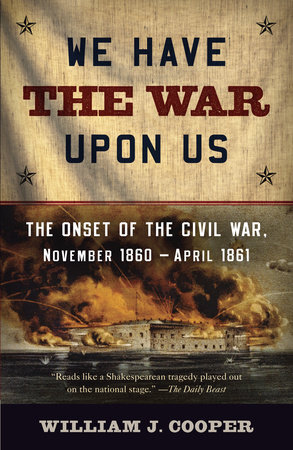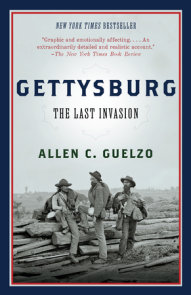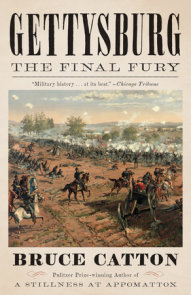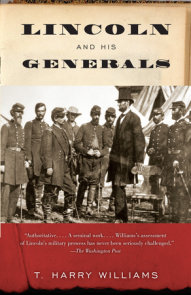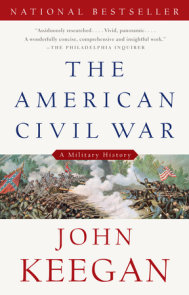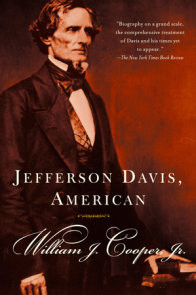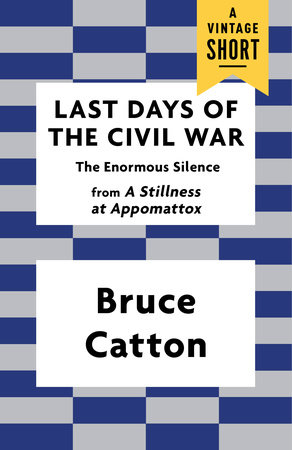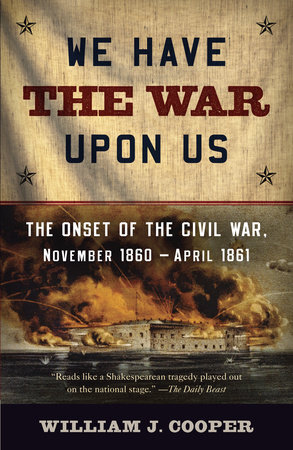

We Have the War Upon Us
By William J. Cooper
By William J. Cooper
By William J. Cooper
By William J. Cooper
Part of Vintage Civil War Library

-
$16.00
Jun 04, 2013 | ISBN 9781400076239
-
Sep 11, 2012 | ISBN 9780307960887
YOU MAY ALSO LIKE
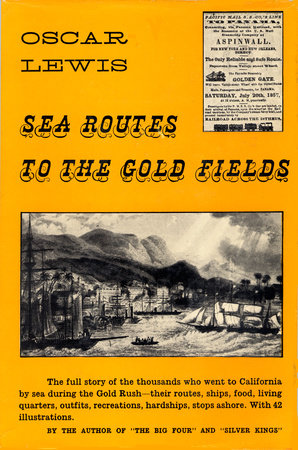
Sea Routes to the Gold Fields
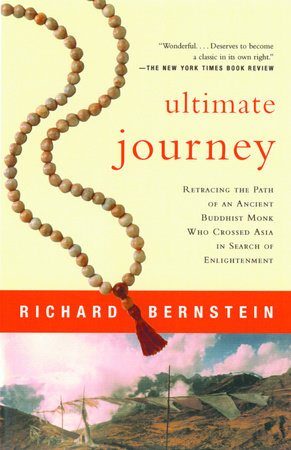
Ultimate Journey
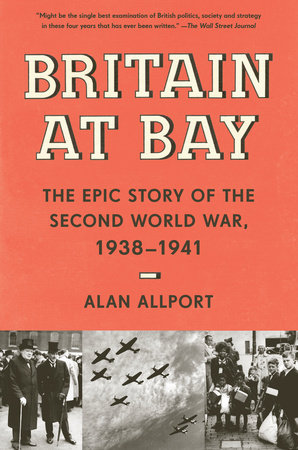
Britain at Bay
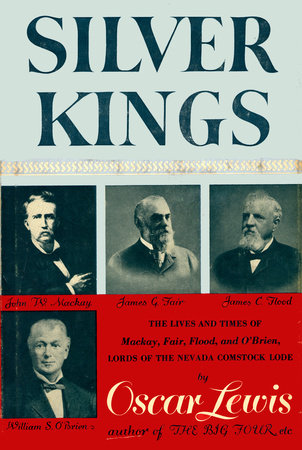
Silver Kings
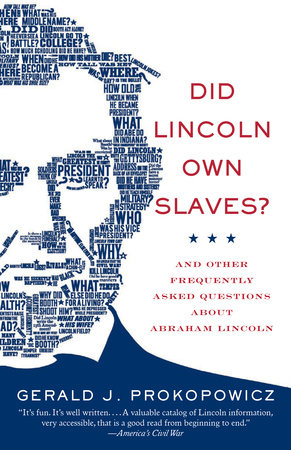
Did Lincoln Own Slaves?
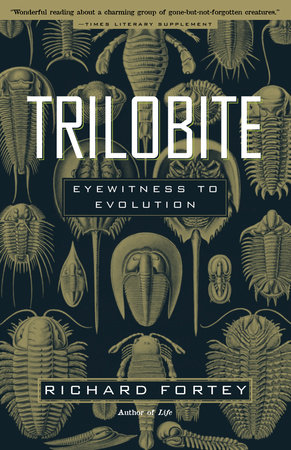
Trilobite
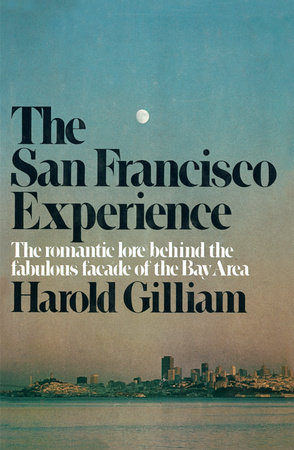
The San Francisco Experience

The Yellow Dog
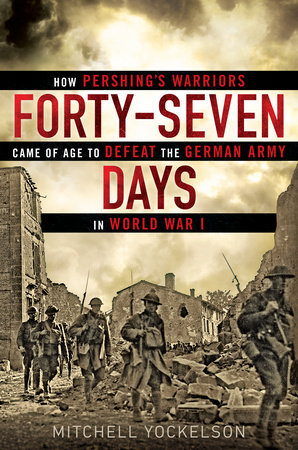
Forty-Seven Days
Praise
“The book reads like a Shakespearean tragedy played out on the national stage, where everything is converging toward a point of catastrophe, and the one thing that could avert disaster at the last minute (in this case, some kind of compromise) fails. . . . There are moral implications here, as well as historical.” —The Daily Beast
“Cooper suggests Lincoln might have forestalled the march toward secession by speaking out before his inaugural, but he refused and was as firmly opposed to compromise as the rest of his party. . . . The book gains momentum as the crisis deepens and Cooper describes the enormous pressures on Lincoln as he agonized whether to reinforce beleaguered Fort Sumter in Charleston Harbor.” —Seattle Times¶
“In this compelling blend of crisp narrative and shrewd analysis, William J. Cooper examines the most profound crisis of the antebellum American Union through the eyes of the contesting political camps. The result is a triumph of balanced, wise, and genuinely fresh historical writing: a book that brilliantly captures the uncertainty, the search for compromise, and the role of contingency during these fraught months.” —Richard Carwardine, author of Lincoln: A Life of Purpose and Power
“We Have the War Upon Us is the best survey of the secession crisis published in a generation. There is no more important question than how the Union fell apart in the wake of Abraham Lincoln’s election in November 1860. Cooper answers it with a clarity that comes only after years of research and thought. This is a book for scholars to ponder, but for all interested readers to enjoy.” —James Oakes, author of Freedom National: The Destruction of Slavery in the United States, 1861—1865
“William J. Cooper’s superb new book reminds us that whatever the influence of vast political, social, and economic forces, history is ultimately the story of human beings making decisions based on flawed perceptions and imperfect knowledge. This powerful narrative will keep readers enthralled even though they know the outcome. Here moderates such as John J. Crittenden and William H. Seward share the stage with Abraham Lincoln, Jefferson Davis, radical Republicans, and southern fire-eaters. Rejecting an irrepressible conflict interpretation, Cooper shows how the partisan, ideological, and sectional interests of political leaders gradually drove the nation toward the abyss. This sobering work recaptures the anguish of the nation’s greatest crisis and surely holds lessons for our own time.” —George C. Rable, author of God’s Almost Chosen Peoples: A Religious History of the American Civil War
“Written with characteristic panache, deeply researched, and replete with shrewd judgments and welcome fresh perspectives, Cooper’s richly detailed study of the secession crisis should delight fellow scholars and general readers alike. It’s a gem of a book.” —Michael F. Holt, author of By One Vote: The Disputed Presidential Election of 1876
“Written from the perspectives of Americans who experienced the efforts to forestall disunion and war during the five months between November 1860 and April 1861 and could not know the full consequences of their actions, this book captures the drama and tensions of those perilous times. Especially noteworthy is Cooper’s treatment of William H. Seward, whose struggles to patch together a compromise form the main thread running through this important book.” —James M. McPherson, author of Tried by War: Abraham Lincoln as Commander in Chief
“A compelling and exciting narrative of the tumultuous six months between Lincoln’s election and the cannonading of Fort Sumter. . . . [Cooper] weaves this story not just through the eyes of Southern ‘fire-eaters’ and Northern Radicals, but examines the roles Northern and Southern conservatives and moderates played in the crisis as well. The result reads more like a political thriller than a historical textbook, though it excels as both. . . . A superb history of how faction and party brought about disunion and war.” —Armchair General
“Drawing on his wide knowledge of the time period, Cooper clearly enumerates the many ways the Civil War could have been avoided and how many people were clueless as to the real threat, especially Lincoln. Illuminating Civil War history from an expert in the field.” —Kirkus Reviews
“Cooper leaves no stone unturned as he explores the hard decisions and compromises leading up to the war, beginning with the way Lincoln’s election changed the face of American politics. . . . Cooper’s research is thorough and unbiased, assigning credit and blame on all sides. . . . Civil War buffs will appreciate the expert examination of the period.” —Publishers Weekly
21 Books You’ve Been Meaning to Read
Just for joining you’ll get personalized recommendations on your dashboard daily and features only for members.
Find Out More Join Now Sign In






